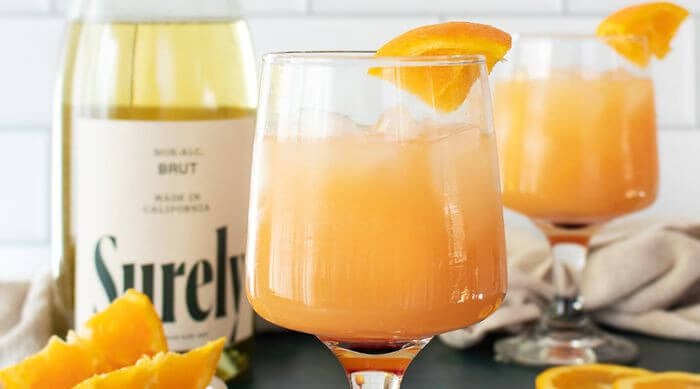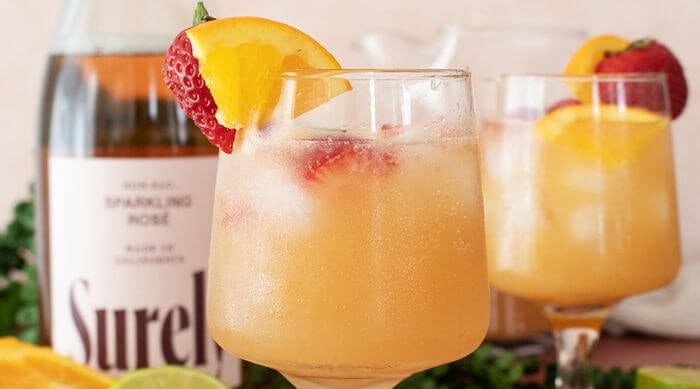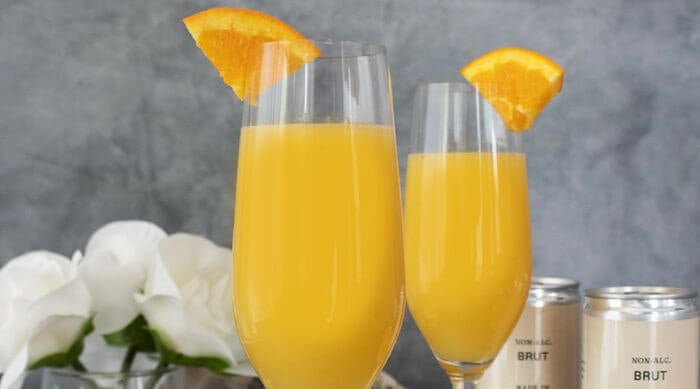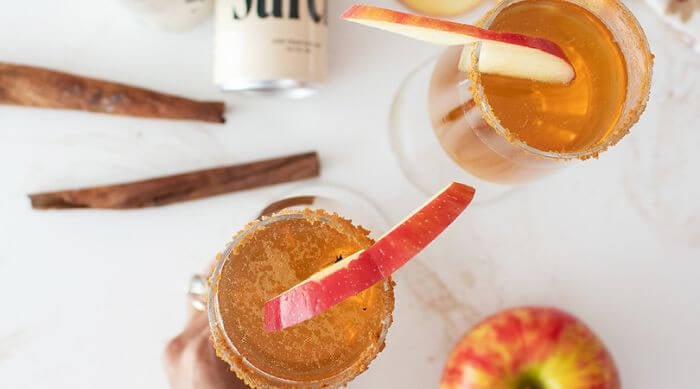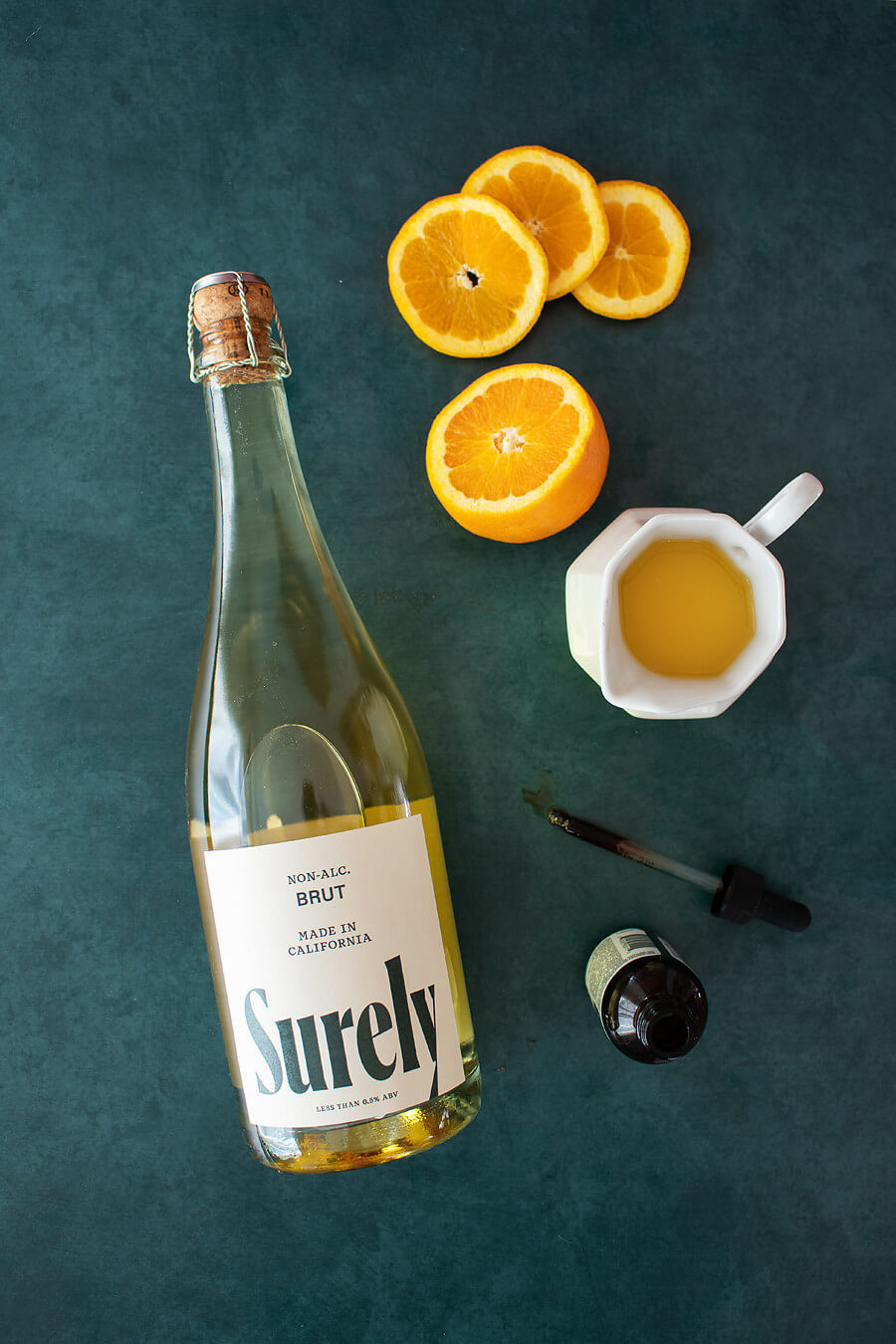
An Aperol spritz is made for summertime with its sunset hues and inviting fizz. A non-alcoholic version is even more refreshing, especially the following day.
What is Aperol?
Aperol is a bright orange liqueur from Italy. Despite its Italian roots, aperol gets its name from the French word “apero,” a more casual form of apéritif. An apéritif, or aperitivo if you’re in Italy, is an alcoholic beverage served before your meal to ready your appetite for what’s ahead.
To confuse you further, the word “aperitivo” also describes happy hours in Italy. Yes, you can still have Aperol at brunch. We won’t judge!
Aperol is also an excellent digestive after a meal, so there are no rules.
What does Aperol taste like? Aperol tastes like bitter orange with hints of fruits and spices like clove, cinnamon, and rhubarb. You get the Aperol spritz when mixed with prosecco and a dash of soda.
Aperol vs. Campari: What’s the difference?
There are quite a few differences between Aperol and Campari, including color, sweetness, and alcohol content.
Let’s start with the color. Aperol is known for its bright orange hue, while Campari is crimson. This likely comes down to the ingredients.
Aperol is made of rhubarb, the plant root gentian, and a flowering plant called cinchona. The Campari Group is more secretive about their product, so we can’t be sure what’s in those bottles.
Aperol is much sweeter than Campari, so whatever the folks at Campari have going on adds to its bitterness.
The alcohol content is a big one, too. Campari has an alcohol by volume (ABV) of about 28%. That’s what makes the Negroni, a famous cocktail made with Campari, gin, and vermouth, such a potent option. The ABV of a bottle of Aperol is much lower.
What is the alcohol content of Aperol? The alcohol content of Aperol is 11% ABV. That’s comparable to many white wines and what makes Aperol a more approachable liqueur.
In the case of our mocktail, we replicate that welcome bitterness without any side effects the morning after. The result is a fizzy concoction that’ll take you straight to Venice.
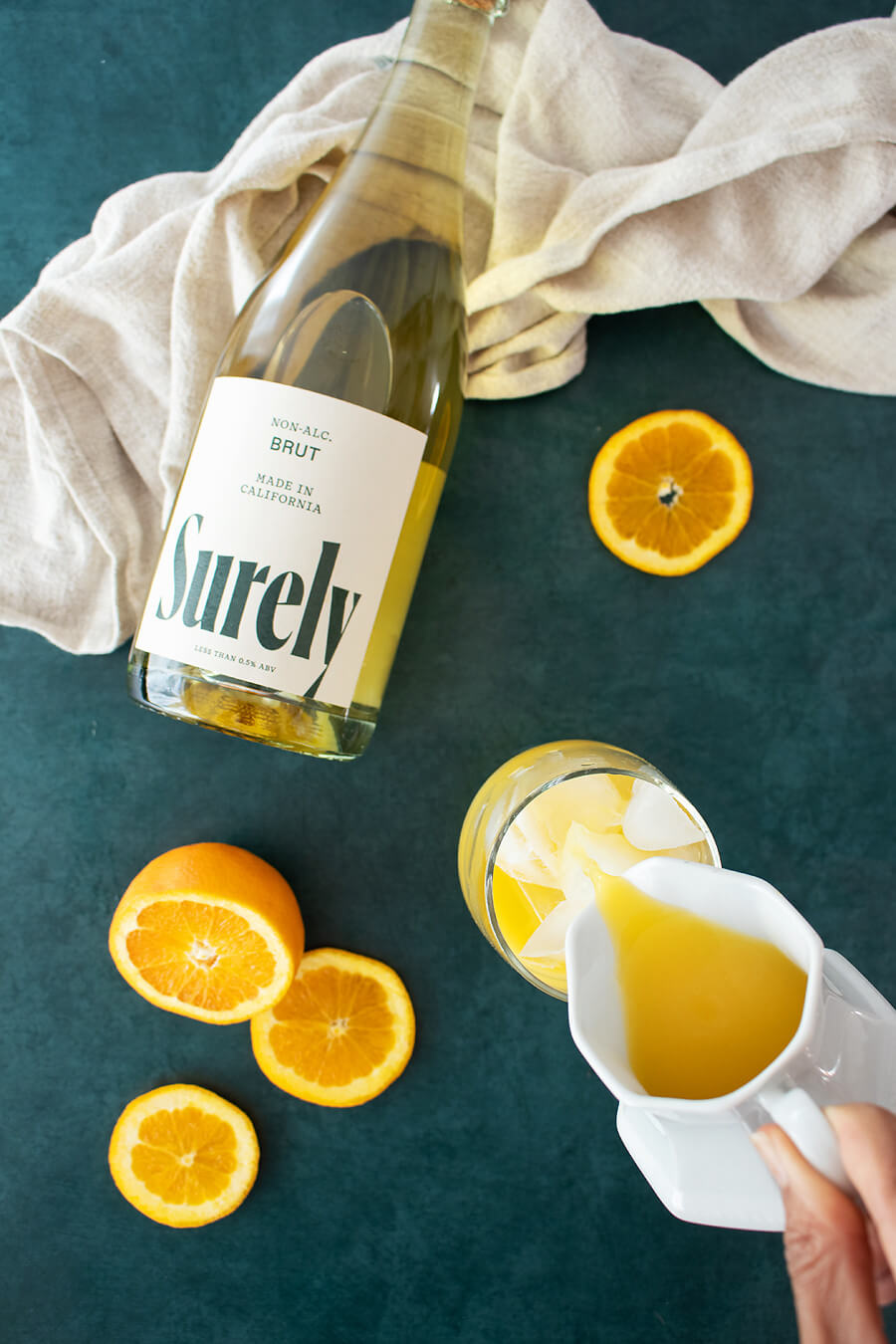
Non-Alcoholic Aperol Spritz Recipe
The trickiest part of this non-alcoholic spritz recipe is getting your hands on the right bitters. Orange-flavored varieties are great, but feel free to play with flavors. Classic recipes call for equal parts Aperol and equal parts prosecco. We bump up the sparkling wine here to keep sugars low.
Total time: 5 minutes
Yields: 2 servings
Serving size: 8 ounces
Ingredients
- 8 ounces Surely Sparkling Brut or Surely Sparkling Rosé
- 6 ounces fresh orange juice
- 4-6 drops non-alcoholic bitters
- 2 ounces soda water*
- Orange slices (for garnish)
- Ice
*Club soda or unflavored sparkling water work, too. You want the flavors of orange to come out and mimic classic cocktail recipes for Aperol spritz.
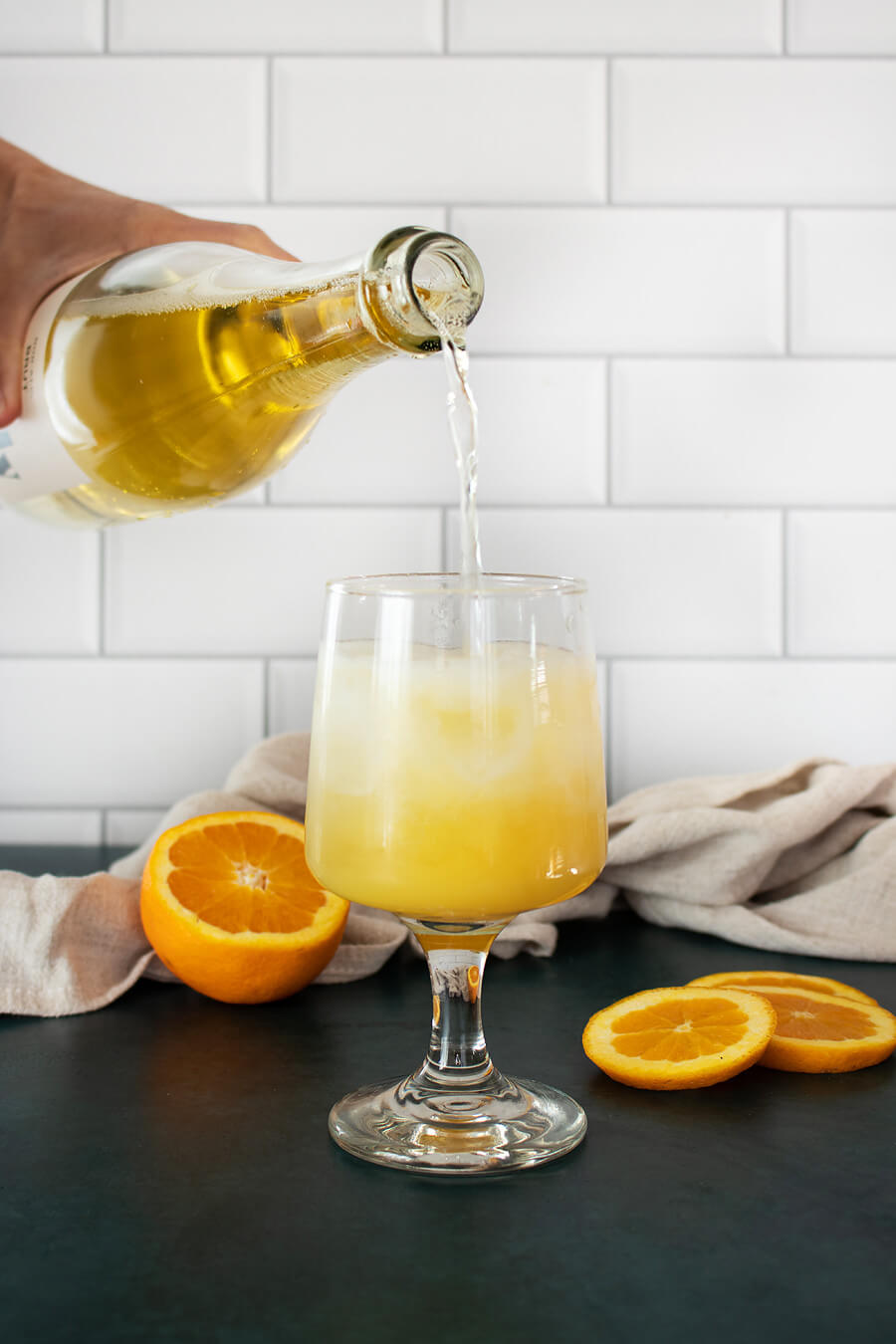
Instructions
- Drop a handful of ice in each wine glass.
- Pour in 3 ounces of orange juice.
- Top with 4 ounces of non-alcoholic wine.
- Add up to an ounce of soda water to taste.
- Drop in bitters and give your drink a stir.*
- Garnish with a fresh slice of orange.
*Use your discretion with the bitters. If you’re missing out on some of the unique bittersweet taste of a traditional Aperol spritz cocktail, feel free to be a little more heavy-handed. A splash of grapefruit juice can work in a pinch, too.
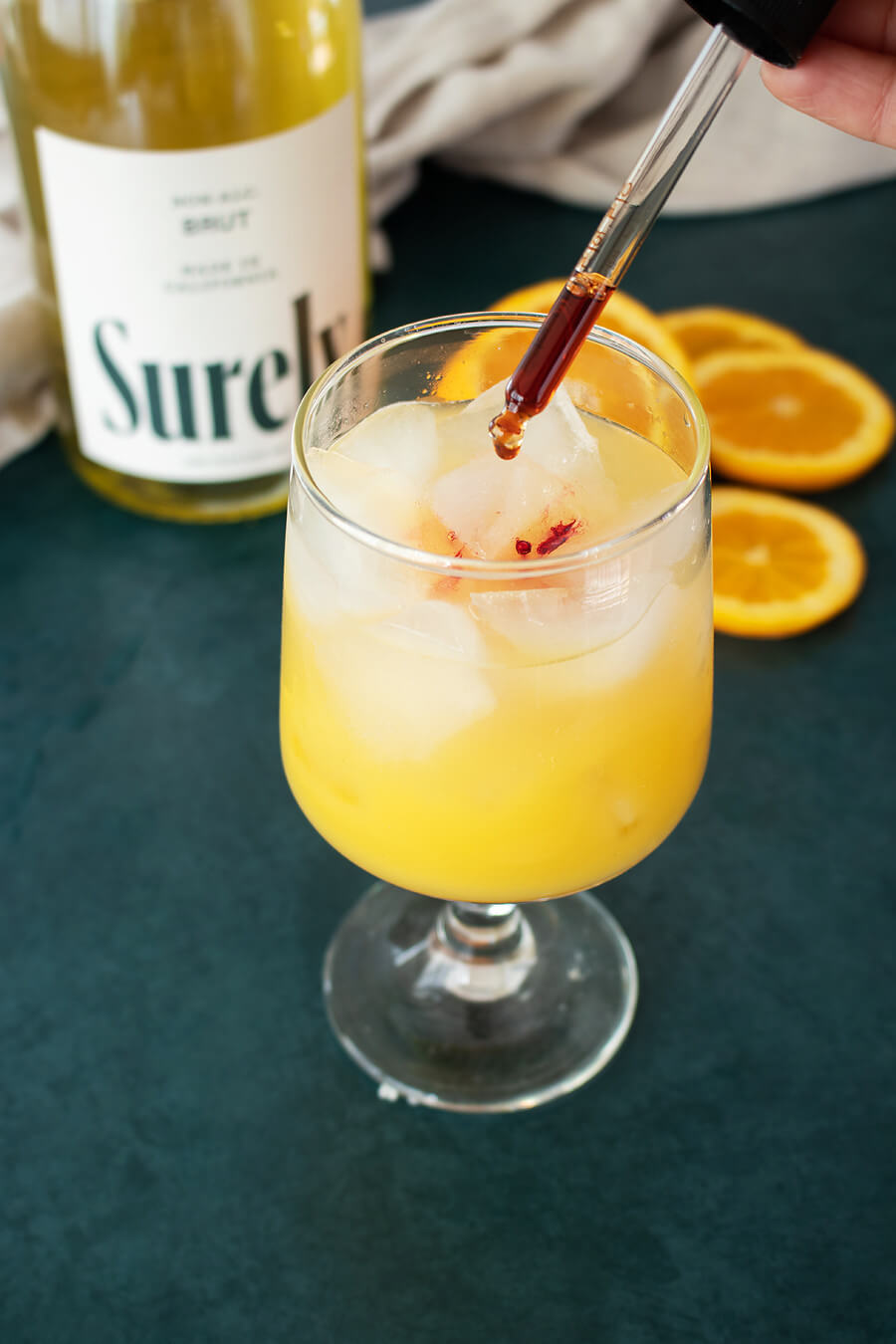
Nutrition Facts (per serving)
- Calories: 42
- Total Fat: 0 g
- Carbs: 9 g
- Fiber: 0 g
- Net Carbs: 9 g
- Protein: 0 g
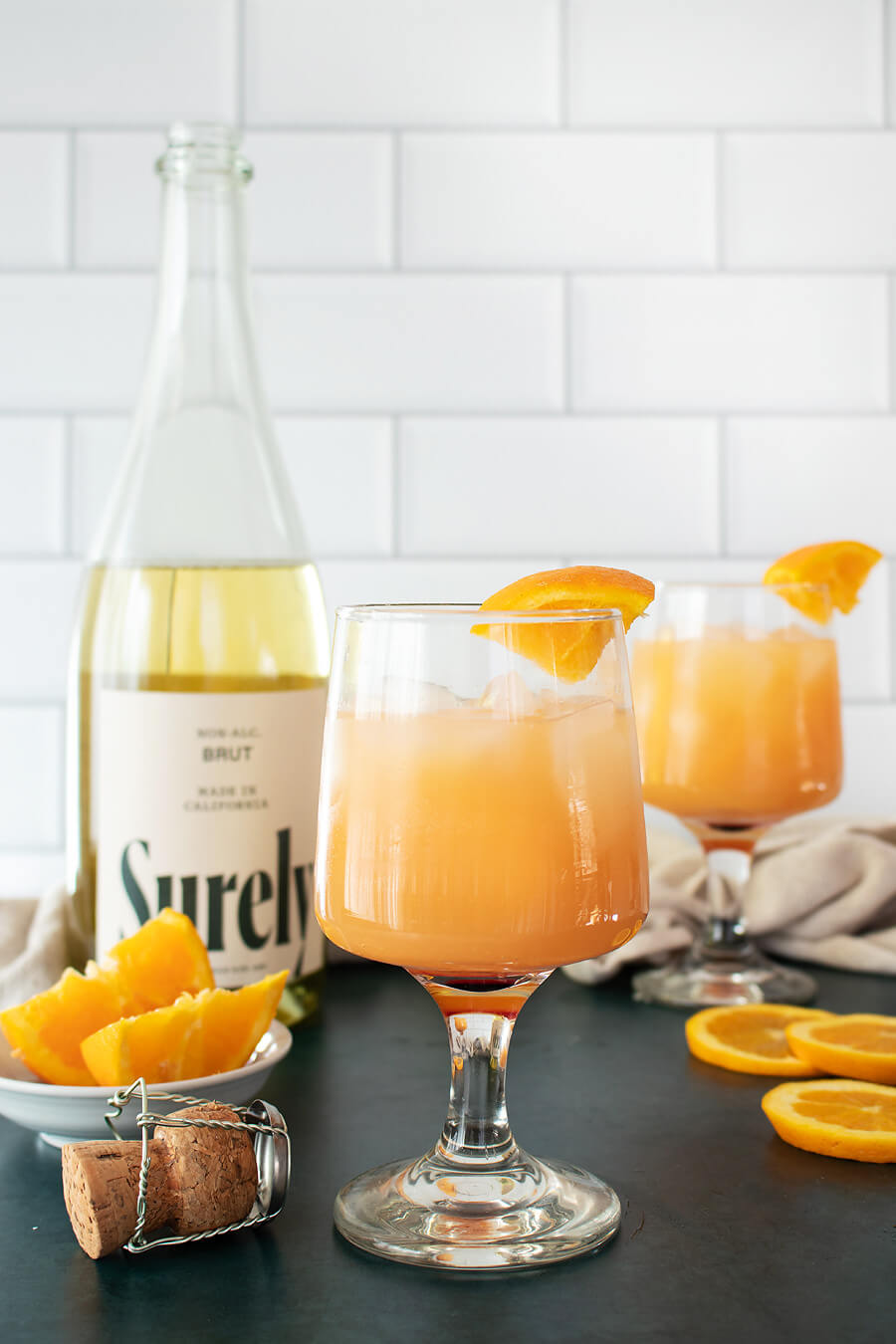
Other Non-Alcoholic Recipes
- White Sangria
- Kir Royale
- Virgin Mimosa
- Non-Alcoholic Sangria
- French 75 Mocktail
- Virgin White Wine Spritzer
- Red Wine Spritzer
- Fall Inspired Sangria
Ready to kiss alcohol goodbye?
An Aperol spritz is one of the most popular drinks from Milan to New York for a reason. It’s delicious. Keep those flavors and ditch the booze with our bubbly mocktail featuring our favorite non-alcoholic wines.

